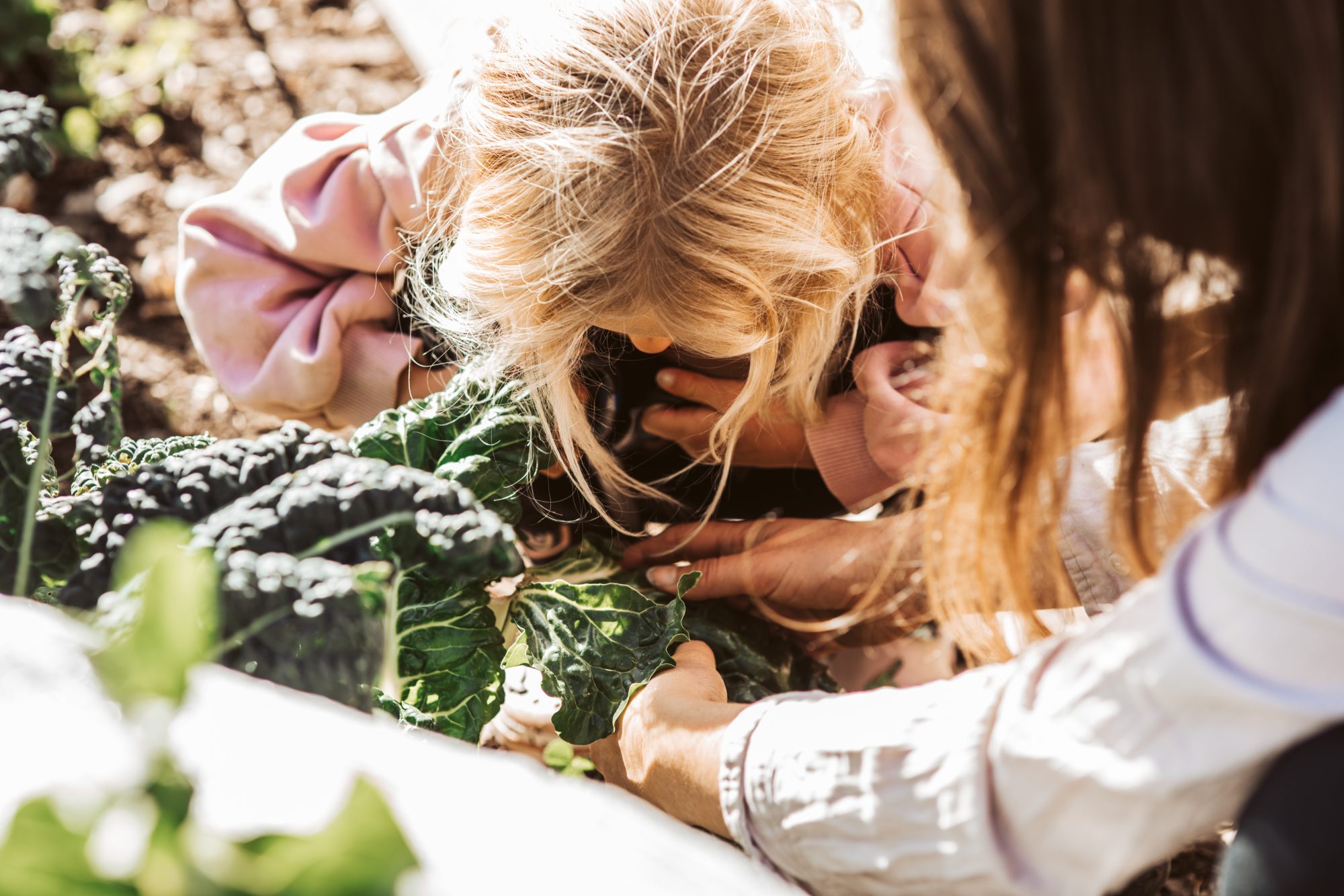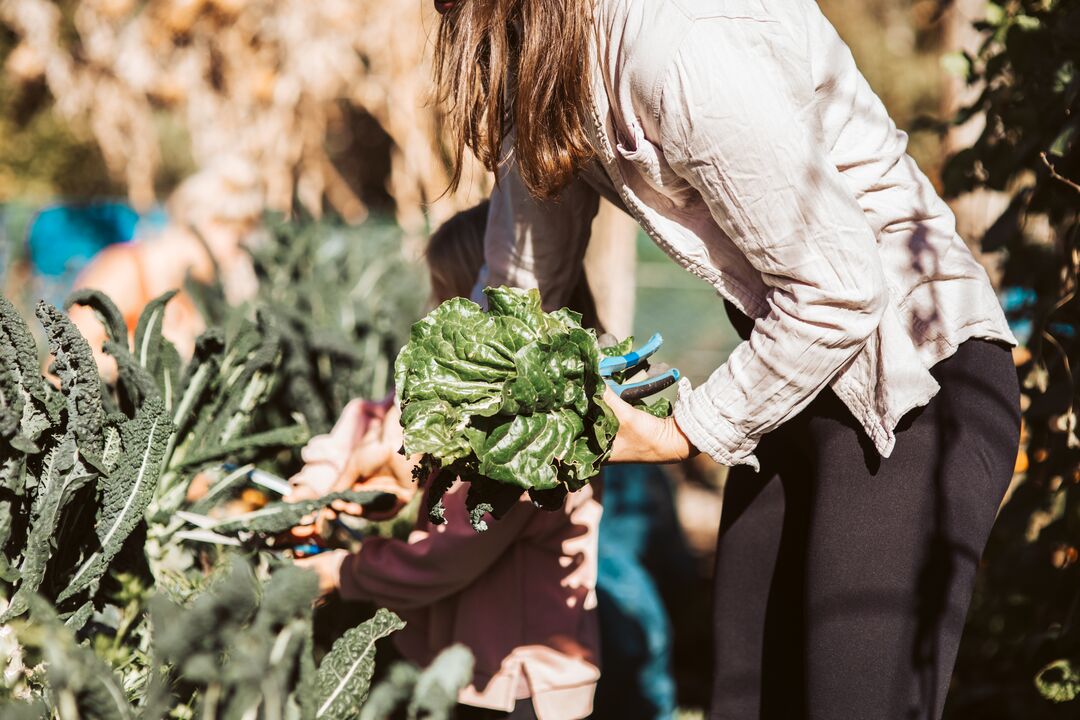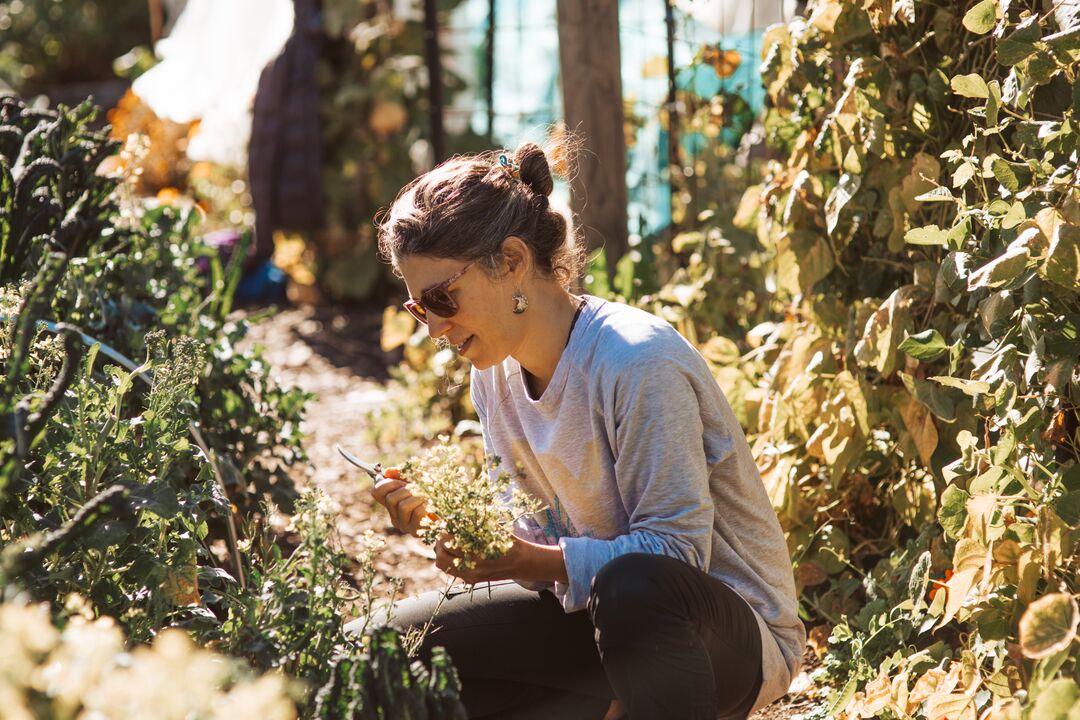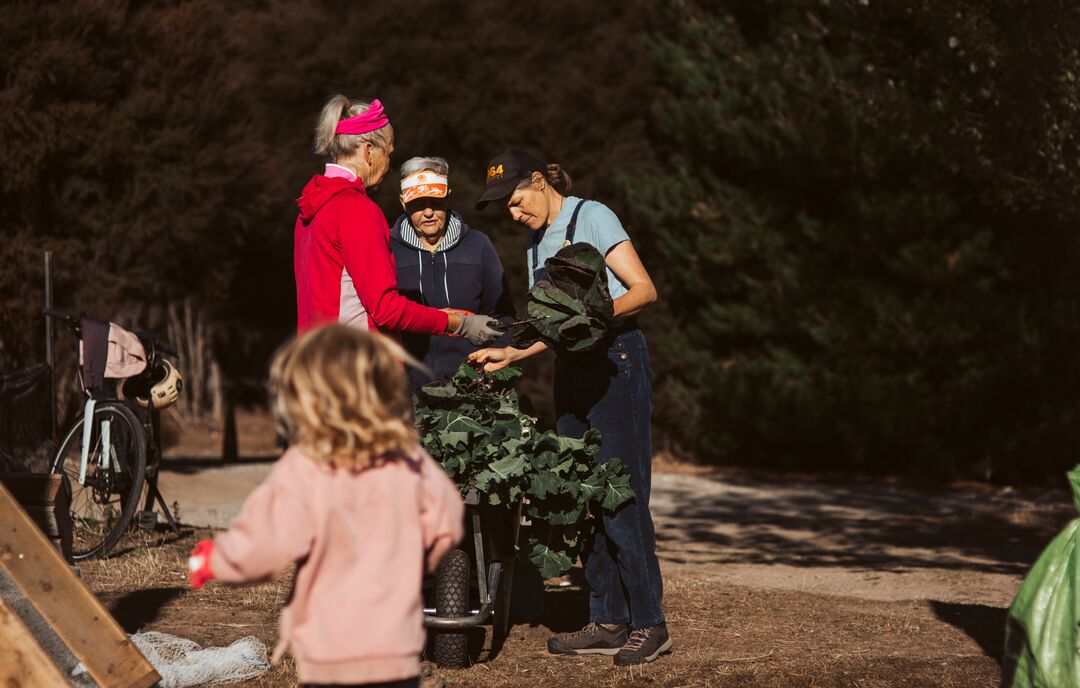Emberly Wetherall, or Em to the regulars, has been running the garden for the last three years with a wealth of knowledge and expertise that has seen the garden flourish. Every Wednesday and Saturday, Em and the team are joined by a diverse crew of volunteers – some with lots of experience, some with a little, but all eager to dig in and do their part. Between the weeding, harvesting, fertilising, repairs, and digging new beds, there’s plenty to keep hands busy.
The garden itself boasts rows and rows (and rows) of fresh produce. From pumpkin fields to green beans to fresh herbs, leafy greens and everything in between, there’s no shortage of fresh fruit and vegetables growing year-round. Several thriving worm farms churn out nutritious fertiliser for the garden beds, while designated compost areas are available for the wider Wānaka community to drop their food scraps.
At the end of the weekly workshops, the plentiful harvest is shared amongst the volunteers, with any surplus kai (food) going back into the community via the Foodbank or free produce stalls dotted around town, supporting food resilience for those in need.
“For me, volunteering lets me engage with my community. You spend your whole life doing things for you – but engaging with the community and food banks is connecting with something bigger than you, and there’s something so powerful about that. It gives your life greater meaning and purpose,” says Em.
The garden began when a small group of people got together with a shared vision for collective gardening. They wanted to create a space where people could come to connect, to share their knowledge, share ideas, and grow nutritious food. Now, that vision has grown to include a focus on waste minimisation, education, community resilience and food security.
“Grow Wānaka is more than just a garden. It’s showcasing how circular food systems work, providing a small-scale model that can be extrapolated to even larger scales,” says Em.
A big part of Grow Wānaka is its collaboration with the wider community. “There are so many great initiatives, projects and organisations working towards the collective good of the land,” says Em.
“All these groups are doing amazing things in their own spaces – but when we collaborate, we share knowledge, and that gives us even more strength,” says Em. “Collaboration is what fuels the fire and keeps us inspired.”
Once a month, Grow Wānaka also runs workshops on a diverse range of topics to help educate the growing community, from foraging to tea making, edible weeds to composting, and so much more. Their work with schools and tamariki (children) includes running a wide selection of programmes for young people, including setting up worm farms, learning to sow seeds, growing vegetables and more.
Grow Wānaka has come to mean so much more to its volunteers than simply tending to a garden. It offers a place for connection, for building relationships, and for growing a sense of community that can be hard to find elsewhere.
“For me, volunteering at Grow Wānaka is where I found my sense of community in this town. Wānaka is quite a transient place, so finding your people can be hard,” says Inka, one of the weekly volunteers. “The garden was a huge turning point for me – it’s what’s kept me here. It made me feel like I was part of the community.”
Each session finishes with a cup of tea and some home-baking, and no doubt a laugh or two and some hearty conversation about the day’s events. Besides the work, it’s the people that make this place so special – and hard to leave behind.




